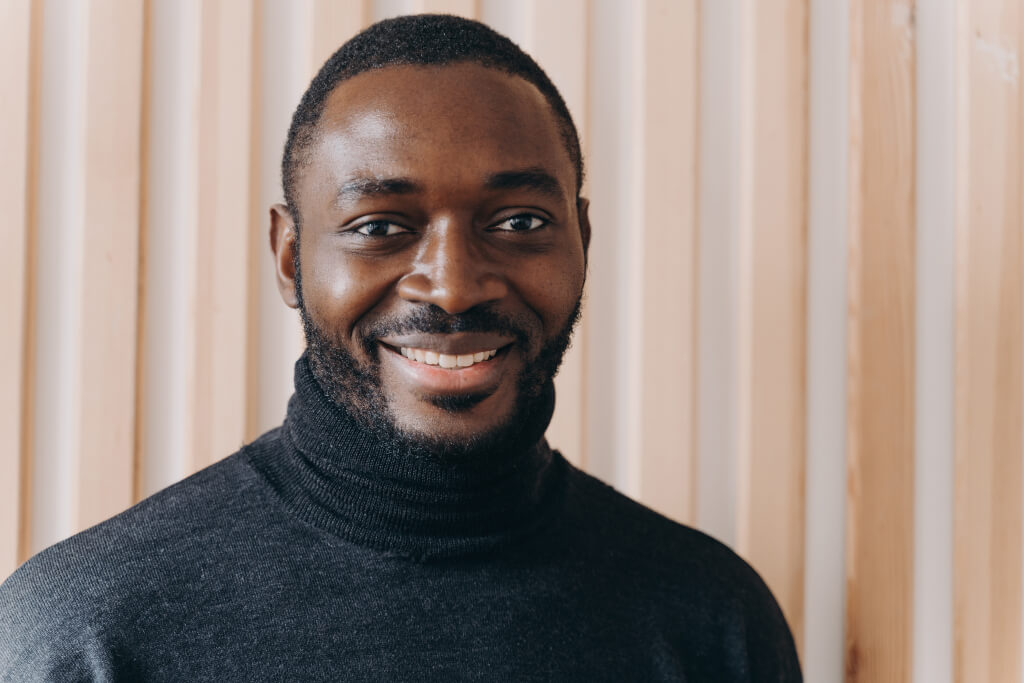Beginning in the rural settings of Phuthaditjhaba in the Free State and ending as a global beacon of hope and perseverance, Fanafikile Lephakha’s life path is an astonishing tale of change. The spirit of Lephakha represents the ability to push through adversity and achieve success. He rowed solo across the Atlantic Ocean, making history as the first black South African to do so.
Formal Training and Initial Work Experience
Despite having grown up in the rural town of Phuthaditjhaba, where Lephakha was born and spent his formative years, he decided to further his studies. He started his professional life after earning a Chemical Engineering degree from the University of Johannesburg in South Africa. But Lephakha’s soul ached for an unconventional course of action, some sort of test that would shake him out of his complacency and propel him forward. He left behind a stable job and took the plunge into self-employment as a life coach.
Lephakha had a once-in-a-lifetime opportunity since he decided to alter his original plan. Together with the famous adventurer Riaan Manser, he rowed 5,500 miles across the Atlantic Ocean in just 45 days. Lephakha had a fantastically resilient mindset, as seen by her ability to triumph over adverse conditions like violent windstorms, capsized boats, illness, and extreme physical exertion.
However, the biggest challenge came when Lephakha learned that his mother had gone away during the tour. Even though he was floating aimlessly in the middle of a wide expanse of water, he found himself engulfed in a maelstrom of emotions. In his own words, he “rowed constantly with tears running down my face but I wanted to keep going.” His outlook was profoundly altered by this experience, which taught him that running away from pain was not the answer but rather facing it head-on.
Mind Refinery: Shaping a New Narrative for Men
After returning from his journey, Lephakha was compelled to help other men confront their fears, insecurities, and unresolved trauma. Because of this need, the “Mind Refinery” software was developed. It’s an effort to build up one’s emotional fortitude, seeing it as a mark of bravery rather than a lack of it. According to a poll by the South African Depression and Anxiety Group (SADAG), one in three adults in South Africa has mental health issues. However, 75% of individuals affected would not seek treatment, and men are especially stigmatised because of their disease. Lephakha’s initiative encourages dialogue, healing, and personal growth among men in South Africa to fill this yawning need.
The Drakensberg Test of Will and Courage
On top of that, the Drakensberg Mountains are where Lephakha made his name through his extraordinary explorations. In the middle of the wild and unspoiled beauty of KwaZulu-Natal, men are encouraged to confront their inner scars and begin the healing process. This nontraditional approach is key to Lephakha’s ideology, which seeks to challenge norms and provide a space where men can freely discuss their emotions without fear of repercussion.
Advice for Africa Nova’s Entrepreneurs
Lephakha advises the businesspeople of Africa Nova to trust in themselves and do what brings them joy. He stresses the need of staying focused in the face of adversity. A person’s professional achievement can be negatively impacted by unresolved personal traumas, which he acknowledges and stresses the importance of addressing. As he put it, “Through determination, anything is possible.”
In South Africa, the figures regarding men’s experiences of trauma are troubling. According to the South African Depression and Anxiety Group (SADAG), approximately 30% of South African adults have experienced a traumatic event that could lead to post-traumatic stress disorder (PTSD). While both men and women experience trauma, societal and cultural norms often discourage men from seeking help.
A research paper published by BMC Psychiatry in 2020 found that 1.1% of South African men suffer from PTSD. However, given the stigma attached to seeking mental health support in the male population, this figure could be an underrepresentation.
The South African Stress and Health (SASH) study revealed that around 3.5% of South African men have experienced at least one traumatic event in their lives. It’s important to note that this figure includes only reported traumas and may exclude many others related to violence, accidents, and societal challenges that men may not recognize or report as trauma.
Facing and Dealing With Trauma is Crucial for Several Reasons
- 1. Physical Health: Unresolved trauma can lead to numerous physical health problems, including heart disease, high blood pressure, and immune system issues. According to the World Health Organization, there’s a high prevalence of non-communicable diseases in South Africa, which can be compounded by untreated trauma.
- 2. Mental Health: Unaddressed trauma significantly contributes to mental health issues like depression, anxiety, and PTSD. SADAG indicates that South Africa has a high prevalence of mental disorders. Up to one in six people in South Africa suffer from anxiety, depression, or substance-use problems (and this does not include more serious conditions such as bipolar disorder or schizophrenia).
- 3. Productivity and Economic Impact: Trauma-related mental health problems can significantly impact work performance and productivity. The WHO reports that depression and anxiety disorders cost the global economy USD 1 trillion each year in lost productivity.
- 4. Interpersonal Relationships and Social Impact: Unresolved trauma can strain interpersonal relationships, leading to family disintegration, domestic violence, and societal discord. This can propagate a cycle of trauma, particularly in regions plagued by violence and poverty.
Lephakha’s initiative, Mind Refinery, acknowledges these issues and addresses them head-on, which is an essential step towards healing and reducing the impact of trauma on South African men and society at large.
Fanafikile Lephakha’s story teaches us that one person’s perseverance may spark widespread change in their community. His efforts serve as a reminder that it’s not enough to build a successful company; it’s also important to create a culture that encourages personal growth and communal resilience. By setting an example for other South African men to follow, he is changing the conventional view of what it means to be a man, one guy at a time.
About The Author:
Lunga Dlamini is a journalist specializing in African start-ups and entrepreneurship. Lunga’s fascination with innovative business models and emerging market trends guides his writing. He has an MBA and has been with Africa Nova since its inception.




